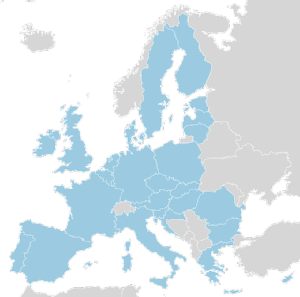IER News & blogs
Degrees of Advantage: A longer-term investigation of the careers of UK graduates
 We are delighted to announce the new stage of the Futuretrack study, which will catch up with the Futuretrack cohort of students who applied to university in 2005/2006, most of whom graduated in 2009/10, eight to nine years after their graduation.
We are delighted to announce the new stage of the Futuretrack study, which will catch up with the Futuretrack cohort of students who applied to university in 2005/2006, most of whom graduated in 2009/10, eight to nine years after their graduation.
This is the fifth stage of the Futuretrack longitudinal survey, and is funded by the Nuffield Foundation. For more information read here.
Invitation to speak at annual OECD meeting

IER’s Director, Chris Warhurst, has been invited to speak at the OECD’s annual Local Economic and Employment Development (LEED) meeting. The session will focus on putting skills utilisation into practice. The meeting takes place at the OECD in Paris over 17-18 May.
Harnessing growth sectors for poverty reduction
Two further reports have been published by Professor Anne Green, Paul Sissons (Coventry University) and Neil Lee (LSE) from an ESRC-funded project on Harnessing Growth Sectors for Poverty Reduction.
The first report on employment entry finds that there is potential for using a well-targeted, sector-focused approach to increase employment entry and help reduce poverty. Social care and the hospitality industry offer opportunities for sector-specific training programmes for people who find it difficult to access employment. But because these sectors are characterised by low pay policies need to promote career progression as well as job entry. The construction sector is also well placed to provide employment and training opportunities for local residents, and the government could encourage this through procurement and planning policies. There is also growing interest in the potential role of social enterprises in providing local jobs – especially with regard to repairs and maintenance of social housing. Sector-focused work experience is an important way of getting young people and unemployed adults skilled up for work.
The second report examines aspects of job quality. It finds that while job quality should be a critical issue for policymakers there is a lack of empirical evidence from approaches seeking to enhance job quality. Pay and job security are important elements of job quality, as are flexible employment practices that enable people to balance work and caring responsibilities. Trade unions can play an important role in improving job quality outcomes. Where there is evidence from sector-focused approaches to job quality these have sought to link changes in employment conditions with service improvements for employers; utilised procurement as an opportunity to shape job quality; or sought to encourage changes in business models as a precursor to improving job quality. There is a need to pilot and trial different approaches to improving job quality in different sectors and for different types of employment.
Technology, austerity and employability in urban labour markets
 Professor Anne Green has had an article published in the journal Urban Studies. The article discusses two key changes affecting employability, labour market operation and policy delivery are austerity and the expansion of the use of information and communication technologies (ICT), especially web-based technologies. Increasingly, given pressures for cost savings and developments in ICT, employers’ recruitment and selection strategies are at least partly web-based, careers guidance and public employment services are moving towards ‘digital by default’ delivery and job seekers are expected to manage their job search activity and benefit claims electronically. It asks the question: what are the implications of austerity and technological change for employability?
Professor Anne Green has had an article published in the journal Urban Studies. The article discusses two key changes affecting employability, labour market operation and policy delivery are austerity and the expansion of the use of information and communication technologies (ICT), especially web-based technologies. Increasingly, given pressures for cost savings and developments in ICT, employers’ recruitment and selection strategies are at least partly web-based, careers guidance and public employment services are moving towards ‘digital by default’ delivery and job seekers are expected to manage their job search activity and benefit claims electronically. It asks the question: what are the implications of austerity and technological change for employability?
The article presents a critical review of the literature on ICT and its relation to, and implications for, employability in a context of austerity. A new framework for employability is presented and those aspects of employability where ICT plays a key role are highlighted. It is concluded that in the context of austerity and technological change more is demanded of individual job seekers/workers, as they are expected to take greater responsibility for their marketability in the labour market. This means that individuals’ attributes and skills are of enhanced importance in conceptualisations of employability. ICT skills have a key role to play in employability, but not at the expense of more conventional social skills which remain very important alongside digital literacy.
Green, A.E. (2017). Implications of technological change and austerity for employability in urban labour markets, Urban Studies, 54(7) pp. 1638–1654. DOI: 10.1177/0042098016631906
Involuntary non-standard employment in Europe
 Professor Anne Green (IER) and Dr Ilias Livanos (Cedefop) have an article on Involuntary Non-Standard Employment in Europe published in the April 2017 issue of European Urban and Regional Studies. The journal article outlines how In some countries in Europe the economic crisis starting in 2008 was marked not only by a rise in unemployment, but also by increases in individuals in part-time and temporary working, so emphasising the need to examine employment composition as well as non-employment. The promotion of non-standard forms of employment – such as part-time and temporary working – has been part of Europe’s employment agenda, but directives have also focused on raising the quality of such work.
Professor Anne Green (IER) and Dr Ilias Livanos (Cedefop) have an article on Involuntary Non-Standard Employment in Europe published in the April 2017 issue of European Urban and Regional Studies. The journal article outlines how In some countries in Europe the economic crisis starting in 2008 was marked not only by a rise in unemployment, but also by increases in individuals in part-time and temporary working, so emphasising the need to examine employment composition as well as non-employment. The promotion of non-standard forms of employment – such as part-time and temporary working – has been part of Europe’s employment agenda, but directives have also focused on raising the quality of such work.
Using European Union Labour Force Survey data, Anne and Ilias construct an indicator of involuntary non-standard (part-time and temporary) employment (INE) , depicting a negative working condition. Descriptive analyses show important differences between countries in the incidence of INE, which is highest in Spain, Portugal and Poland, and also in the composition of INE. By contrast, INE tends to be lower in countries with Anglo-Saxon and Nordic welfare state models. Econometric analyses reveal that young workers, older workers, women, non-nationals, those with low education and those who were unemployed a year ago are at greatest risk of INE.
Green, A. and Livanos, I. (2017). Involuntary non-standard employment in Europe. European Urban and Regional Studies, 24(2), pp. 175–192. DOI: 10.1177/0969776415622

